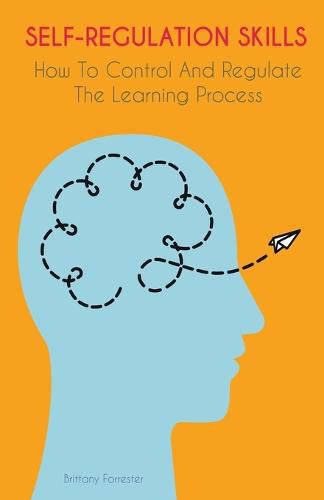Readings Newsletter
Become a Readings Member to make your shopping experience even easier.
Sign in or sign up for free!
You’re not far away from qualifying for FREE standard shipping within Australia
You’ve qualified for FREE standard shipping within Australia
The cart is loading…






This title is printed to order. This book may have been self-published. If so, we cannot guarantee the quality of the content. In the main most books will have gone through the editing process however some may not. We therefore suggest that you be aware of this before ordering this book. If in doubt check either the author or publisher’s details as we are unable to accept any returns unless they are faulty. Please contact us if you have any questions.
Self-regulation can be defined in various ways. In the most basic sense, it involves controlling one's behavior, emotions, and thoughts to pursue long-term goals. More specifically, emotional self-regulation refers to the ability to manage disruptive emotions and impulses. In other words, to think before acting. It also reflects the ability to cheer yourself up after disappointments and to work in a way consistent with your deepest held values.
It's easy to see how a lack of self-regulation will cause problems in life. A child who yells or hits other children out of frustration will not be famous among peers and may face reprimands at school. An adult with poor self-regulation skills may lack self-confidence and self-esteem and have trouble handling stress and frustration. Often, this might be expressed in anger or anxiety. In more severe cases, it may be diagnosed as a mental disorder.
Self-regulation is also essential because it allows you to follow your deeply held values or social conscience and express yourself appropriately. If you value academic achievement, it will enable you to study instead of slack off before a test.
Many students do not seem to possess the self-regulatory skills they need to become high academic performers.
Some students have found ways to regulate their learning and develop a system of control, which shields them from motivational interference and motivational conflict. Limiting distractions and using music to tune out distractions are students' most common self-regulatory strategies to manage motivational interference and conflict. Other students use athletics.
$9.00 standard shipping within Australia
FREE standard shipping within Australia for orders over $100.00
Express & International shipping calculated at checkout
This title is printed to order. This book may have been self-published. If so, we cannot guarantee the quality of the content. In the main most books will have gone through the editing process however some may not. We therefore suggest that you be aware of this before ordering this book. If in doubt check either the author or publisher’s details as we are unable to accept any returns unless they are faulty. Please contact us if you have any questions.
Self-regulation can be defined in various ways. In the most basic sense, it involves controlling one's behavior, emotions, and thoughts to pursue long-term goals. More specifically, emotional self-regulation refers to the ability to manage disruptive emotions and impulses. In other words, to think before acting. It also reflects the ability to cheer yourself up after disappointments and to work in a way consistent with your deepest held values.
It's easy to see how a lack of self-regulation will cause problems in life. A child who yells or hits other children out of frustration will not be famous among peers and may face reprimands at school. An adult with poor self-regulation skills may lack self-confidence and self-esteem and have trouble handling stress and frustration. Often, this might be expressed in anger or anxiety. In more severe cases, it may be diagnosed as a mental disorder.
Self-regulation is also essential because it allows you to follow your deeply held values or social conscience and express yourself appropriately. If you value academic achievement, it will enable you to study instead of slack off before a test.
Many students do not seem to possess the self-regulatory skills they need to become high academic performers.
Some students have found ways to regulate their learning and develop a system of control, which shields them from motivational interference and motivational conflict. Limiting distractions and using music to tune out distractions are students' most common self-regulatory strategies to manage motivational interference and conflict. Other students use athletics.